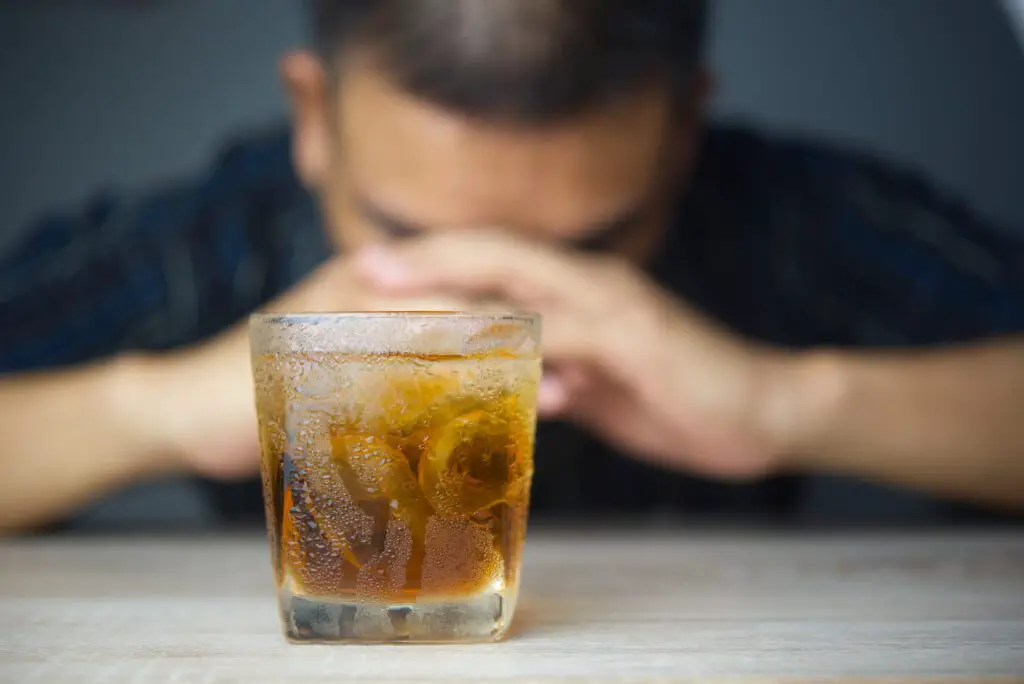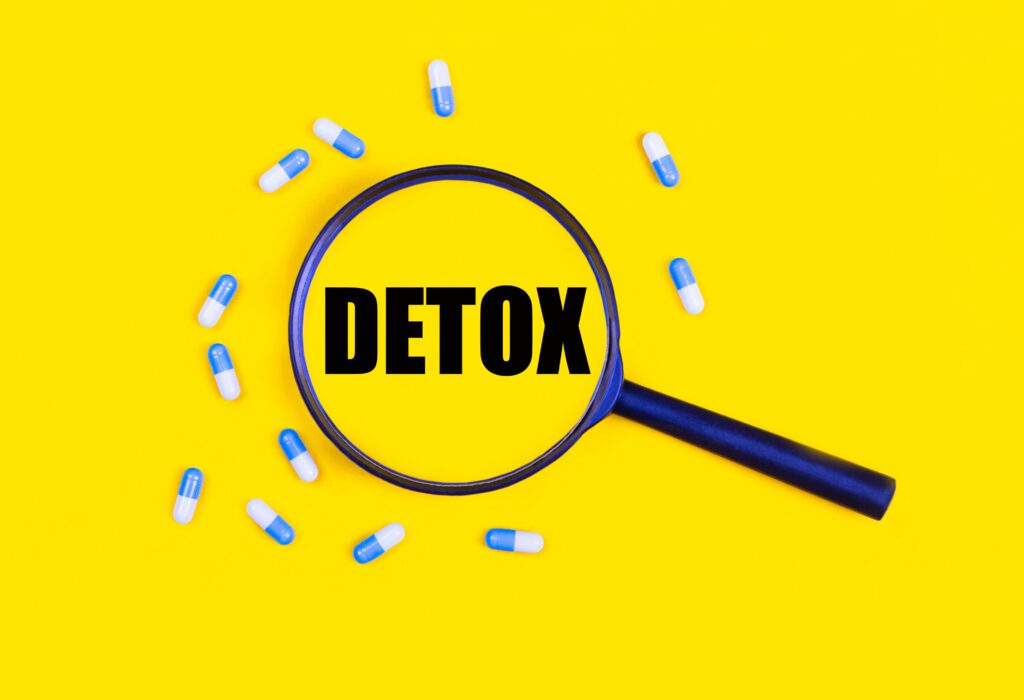Key Takeaways
- Consulting healthcare professionals ensures a safe and tailored detox process.
- Select between inpatient and outpatient detox based on addiction severity and personal needs.
- Proper medications and treatments are essential for alleviating withdrawal symptoms.
- A balanced diet and adequate hydration are vital for supporting the detox process.
- Continuous support from family, friends, and healthcare providers is vital for long-term sobriety and recovery.
Detoxification is a critical first step for anyone looking to break free from alcohol and drug dependence. This process, often referred to simply as ‘detox,’ involves clearing the body of harmful substances and managing withdrawal symptoms. While detoxification addresses the physical aspect of addiction, rehabilitation focuses on the psychological and behavioral changes necessary for long-term recovery. Understanding this distinction is essential for anyone considering a detox program.
This guide aims to provide a comprehensive, step-by-step approach to detoxing from alcohol and drugs. We will cover everything from the initial medical evaluation to managing withdrawal symptoms, ensuring proper nutrition and hydration, and providing psychological support. By the end of this guide, you’ll have a clear understanding of the detox process and the steps needed to embark on a path to recovery.

1. Preparing for Detox
Starting a detox process requires careful preparation to ensure a safe and successful experience.
The Importance of Medical Consultation
Before you begin, it’s important to consult with a healthcare professional or addiction specialist. They can assess your individual needs, medical history, and the severity of your substance use. This assessment will help determine the most appropriate detox approach and any necessary medications to manage withdrawal symptoms safely. Medical guidance is essential to minimize risks and maximize the effectiveness of your detox process.
Selecting the Right Detox Program
Detox programs come in two main types: inpatient and outpatient.
- Inpatient detox: This involves staying at a specialized facility where you receive 24/7 medical supervision and support. Inpatient programs are often recommended for individuals with severe addictions or those with underlying medical conditions. The structured environment and constant care can help manage withdrawal symptoms effectively and reduce the risk of relapse.
- Outpatient detox: This option allows you to detox at home while attending regular appointments with healthcare professionals. Outpatient detox is typically suitable for individuals with milder addictions and a strong support system at home. However, it requires a high level of commitment and self-discipline to follow the prescribed treatment plan.
Choosing the right detox program depends on your individual circumstances and the severity of your addiction. Your healthcare provider can help you make an informed decision and recommend effective detoxification programs that cater to your specific needs.
Creating a Support System
Detoxing can be challenging, both physically and emotionally. Building a strong support system is crucial to your success.
- Family and friends: Inform your loved ones about your decision to detox and seek their support. Their encouragement and understanding can provide invaluable motivation during difficult times.
- Support groups: Joining a support group, whether in-person or online, can connect you with others who understand your struggles. Sharing experiences, challenges, and successes can create a sense of community and help you stay on track.
- Therapists and counselors: Consider seeking professional therapy or counseling during and after detox. These professionals can help you address the underlying causes of your addiction, develop coping mechanisms, and prevent relapse.
Detox is just the first step in the recovery process. The support you receive during this initial phase can set the foundation for long-term sobriety.
2. Medical Evaluation
A thorough medical evaluation is a vital step in the detox process, ensuring that the detox plan is safe and tailored to the individual’s specific needs.
- Initial assessment by healthcare professionals: During your initial assessment, experienced healthcare providers will guide you through a series of questions and examinations. This helps them understand your unique situation, including your medical history, current health status, and the extent of your substance use.
- Understanding your medical history and substance use: Open communication is key during this stage. Be honest and transparent about your past and present medical conditions, medications you’re taking, allergies, and any previous detox experiences. Share details about the substances you’ve been using, the frequency and duration of use, and any withdrawal symptoms you might have encountered in the past.
- Customized detox plan based on individual needs: Based on the information gathered during the assessment, your healthcare team will create a personalized detox plan tailored to your specific needs. This plan may include:
- Medications: To manage withdrawal symptoms and cravings, ensuring a smoother detox experience.
- Therapy: Individual or group counseling to address underlying emotional or psychological issues that may contribute to substance use.
- Nutritional guidance: A balanced diet rich in nutrients to support your body’s healing process.
- Monitoring: Regular check-ups to track your progress, adjust medications if necessary, and provide ongoing support.
Your customized detox plan is designed to optimize your comfort, safety, and overall well-being throughout the process. It’s a collaborative effort between you and your healthcare team, working together to achieve your recovery goals.
3. Managing Withdrawal Symptoms
Withdrawal symptoms are a natural part of the detox process, but they can vary in intensity and duration depending on the substance used and individual factors. Understanding these symptoms and the available treatments is crucial for a comfortable and safe detox.
Common Withdrawal Symptoms for Various Substances
Different substances can trigger distinct withdrawal symptoms. Here are some common examples:
- Alcohol: Anxiety, tremors, sweating, nausea, insomnia, hallucinations, seizures (in severe cases)
- Opioids: Muscle aches, restlessness, runny nose, watery eyes, diarrhea, vomiting, chills, cravings
- Stimulants: Fatigue, depression, irritability, anxiety, difficulty concentrating, increased appetite, vivid dreams
Medications and Treatments Used to Alleviate Symptoms
To manage withdrawal symptoms effectively, healthcare providers may use various medications and treatments. For alcohol withdrawal, benzodiazepines are commonly prescribed to reduce the risk of seizures and ease anxiety. In opiate detox, medications like methadone, buprenorphine, and clonidine can help mitigate symptoms and cravings.
Antidepressants and antipsychotics may be used to manage the psychological symptoms of stimulant withdrawal. Additionally, non-pharmacological treatments such as hydration, nutritional support, and a calm environment can significantly contribute to alleviating withdrawal symptoms.
Monitoring and Managing Severe Withdrawal Cases
Severe withdrawal cases require close monitoring and management to prevent complications. Continuous medical supervision ensures that any signs of severe withdrawal, such as seizures or cardiac issues, are promptly addressed.
Inpatient detox programs are particularly beneficial for individuals with high-risk withdrawal, as they provide round-the-clock care. Medical staff can quickly intervene with appropriate treatments, such as intravenous fluids, medications, and other supportive measures, to stabilize the patient.
By understanding the common symptoms, utilizing appropriate medications and treatments, and ensuring continuous monitoring for severe cases, healthcare providers can help individuals navigate this challenging phase of recovery.

4. Nutrition and Hydration
A successful detox isn’t just about removing harmful substances; it’s about giving your body the tools it needs to heal. Proper nutrition and hydration are essential for a smooth and effective detox process.
Why a Balanced Diet Matters
When you’re detoxing, your body is working hard to eliminate toxins and repair damage. A well-rounded diet provides the essential nutrients your body needs for this process.
- Focus on whole foods: Choose fruits, vegetables, whole grains, lean proteins, and healthy fats. These foods provide vitamins, minerals, and antioxidants that support detoxification pathways in your liver and other organs.
- Avoid processed foods: Steer clear of sugary snacks, refined carbohydrates, and processed foods. These can spike your blood sugar, cause cravings, and hinder your recovery.
- Prioritize protein: Protein is crucial for repairing tissues and rebuilding muscles that may have been affected by substance use. Include lean meats, fish, eggs, beans, and nuts in your meals.
- Don’t forget fiber: Fiber helps regulate digestion and eliminate toxins from your body. Aim for plenty of fruits, vegetables, and whole grains.
Vitamins and Supplements
While a balanced diet is the foundation, certain vitamins and supplements can provide extra support during detox:
- B vitamins: These vitamins are essential for energy production, nerve function, and mood regulation. They can be depleted by substance use.
- Vitamin C: This antioxidant supports your immune system and helps your body produce the chemicals needed for detoxification.
- Magnesium: This mineral is involved in many bodily functions, including muscle relaxation, sleep, and stress management.
- Multivitamins: A good multivitamin can provide a broad spectrum of nutrients to ensure you’re not missing anything.
Stay Hydrated for Optimal Health
Water is essential for every bodily function, and it’s even more crucial during detox. Water helps flush out toxins, supports digestion, and keeps your organs functioning properly.
- Aim for 8-10 glasses per day: Spread your water intake throughout the day.
- Choose water over sugary drinks: Avoid soda, juice, and other sugary drinks, as these can dehydrate you further.
- Listen to your body: If you’re feeling thirsty, drink water. Thirst is a sign that your body needs hydration.
Your nutritional needs may vary, so it’s important to talk to your doctor or a registered dietitian to create a personalized plan that works for you.
5. Psychological Support
Detoxing from alcohol and drugs isn’t just a physical challenge; it’s a mental and emotional one, too. Addressing your psychological well-being is crucial for a successful and sustainable recovery.
Counseling and Therapy
Professional counseling and therapy can provide invaluable support during detox and beyond. A therapist can help you:
- Process emotions: Detox can bring up a wide range of emotions, from anxiety and depression to anger and grief. Therapy provides a safe space to explore these feelings and develop healthy coping mechanisms.
- Identify triggers: Therapists can help you recognize the people, places, or situations that might trigger cravings. This awareness allows you to create strategies for avoiding or managing those triggers.
- Build healthy habits: Therapy can teach you stress-management techniques, relaxation exercises, and communication skills that support your overall well-being and reduce the risk of relapse.
Techniques for Managing Cravings and Triggers
Cravings are a normal part of detox, but they can be intense and challenging. Here are some techniques to help you manage them:
- Distraction: Engage in activities that you enjoy and that take your mind off cravings. This could be reading, exercising, spending time with loved ones, or pursuing a hobby.
- Mindfulness: Practice mindfulness techniques like meditation or deep breathing. These can help you observe cravings without reacting to them.
- HALT: Check in with yourself using the acronym HALT: Are you Hungry? Angry? Lonely? Tired? Addressing these basic needs can often reduce cravings.
Seeking psychological support is a sign of strength, not weakness. It’s a crucial part of taking care of your whole self and setting yourself up for lasting recovery.
Final Words
Choosing to detox from alcohol and drugs is a significant and brave decision. It requires dedication, support, and the right resources. By focusing on medical guidance, proper nutrition, and symptom management, you are building a strong foundation for recovery. While this path can be challenging, each step brings you closer to a healthier, more fulfilling life. You are not alone, and a brighter, substance-free life is within reach.
MindOwl Founder – My own struggles in life have led me to this path of understanding the human condition. I graduated with a bachelor’s degree in philosophy before completing a master’s degree in psychology at Regent’s University London. I then completed a postgraduate diploma in philosophical counselling before being trained in ACT (Acceptance and commitment therapy).
I’ve spent the last eight years studying the encounter of meditative practices with modern psychology.
